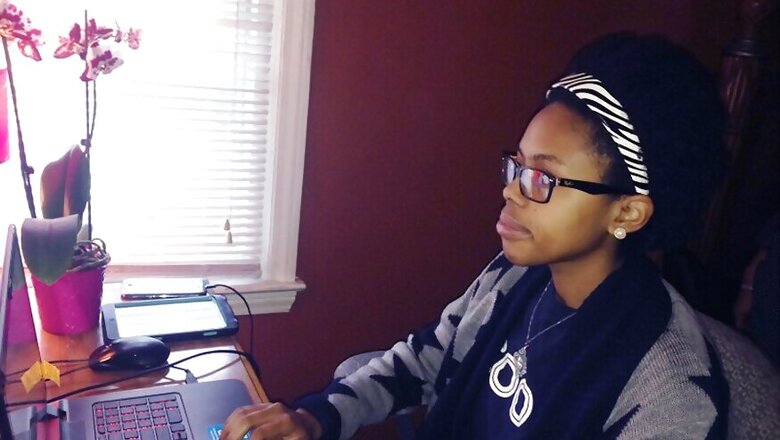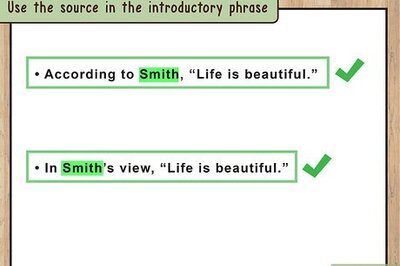
views
Computers already are a big part of Marianna Campbell’s life. Now, the 17-year-old Detroit resident is looking forward to attending workshops, classes and discussions with other girls who want to learn about cyber technology. With a focus on programming and computer coding, the events are being offered by Oakland-based Black Girls CODE. The nonprofit introduces young black, Latino and Native American females to computer sciences. Black Girls CODE is starting a chapter in Detroit. Girls in the program also learn how to build websites and create mobile apps. For Marianna, who is black, it will be an opportunity to speak the same computer language while learning with girls who look like she does and who share similar cultural experiences.
“It’s different than when you try to learn it by yourself," said Marianna, who takes high school courses online. “You’re able to feed off each other’s energy. It’s important to have some excitement about it, to help you keep going and focused." Women are underrepresented in STEM — science, technology, engineering and math — careers, but findings released last year from a 2014 assessment of technology and engineering literacy by The Nation’s Report Card showed that eighth-grade girls were better than boys at thinking through problems and using technology to solve them. A coalition of businesses including Amazon, Google and General Motors announced recently in Detroit that they will give $300 million to boost K-12 computer science programs across the U.S. Detroit-based Quicken Loans said it will work to ensure that 15,000 Detroit Public Schools students receive computer science training.
President Donald Trump also has announced a plan to spend at least $200 million annually on competitive grants so schools can broaden access to computer science education. Trump’s daughter and adviser, Ivanka Trump, told a panel in Detroit that it is crucial that young people, especially girls and racial minorities, learn how to write computer code and study computer science. Black Girls CODE founder Kimberly Bryant, 50, describes the current generation of young people as “digital natives." “They are not afraid of technology. They are comfortable with it. They use it as a tool," Bryant said.
Black Girls CODE has chapters in 13 U.S. cities and in Johannesburg, South Africa. It has worked with 8,000 girls since being founded and hopes to train 1 million girls for STEM careers by 2040. “Programming is now and the future," said Dominica Campbell, Marianna’s mother. “Even if you become a doctor or lawyer, you still need to know how to program on the side. In programming and coding, you will always have a job."
Watch Video: Samsung Galaxy Note 8 Review: The Best Galaxy Note Ever


















Comments
0 comment